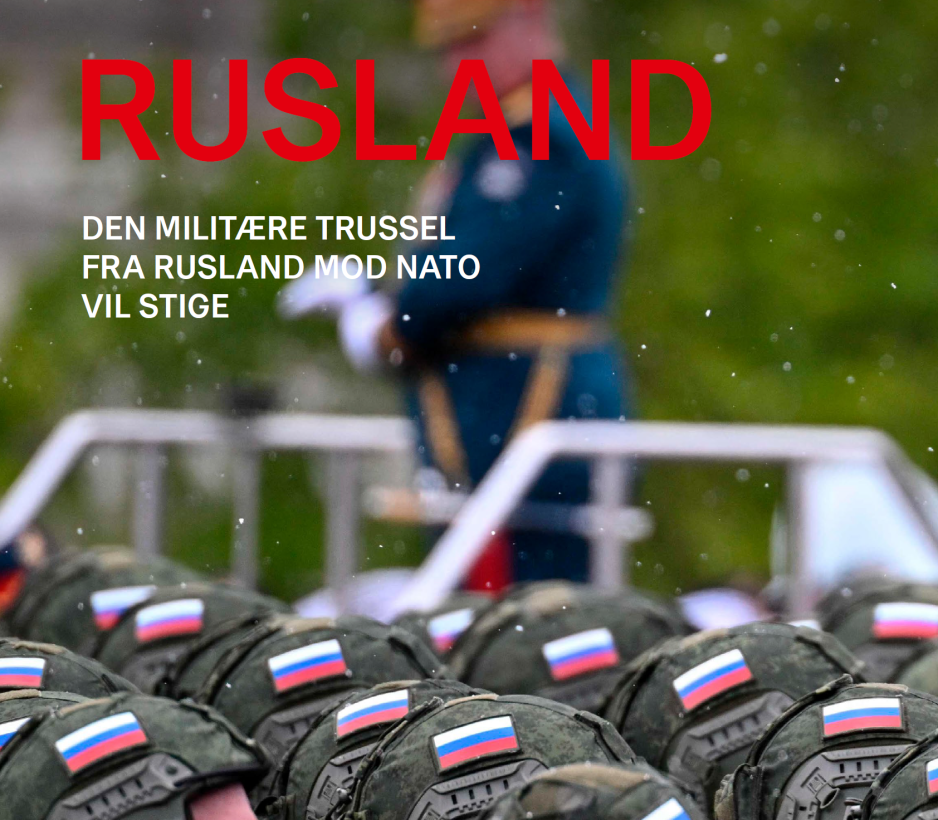Arne O. Holm says I Was Going to Write About Hope, but the Danes Threw a Spanner in My Keyboard

Den danske etterretningstjenesten mener sjansen for militær konflikt i Arktis har økt. (Faksimile fra rapporten «Udsyn 2024».
Comment: I was going to write something peaceful heading into a new Arctic year. Some hopeful observations despite the brutality that surrounds us. But then the Danish Security and Intelligence Service fired some early New Year fireworks into my keyboard.
This is a comment written by a member of the editorial staff. The comment expresses the writer's opinions.
"Udsyn 24" is the name of the report published right before Christmas. It has its counterpart in similar threat assessments from the intelligent services in Sweden, Norway, and Finland and provides a total estimate of the outer threats toward the Nordic countries.
Increased militarization
A shared aspect of the analyses is that the Arctic and the High North are granted increased space, which in itself reveals increased tension and threat levels in the North, even if the war takes place further south in Europe. The old slogan «High North – Low Tension» has long since deflated and been replaced by increased militarization.
Where Norway has a long Arctic coastline and also borders Russia, the royal Danish capital, Copenhagen, is safely placed in the more urban Europe. Yet, one of the report's main conclusions is that "Russia highly prioritizes the region and will demonstrate strength through an aggressive and threatening behavior, which will entail greater risk of escalation than seen before in the Arctic."
But why does the Danish Intelligence Service assign ten pages, in addition to the conclusion, on the Arctic security situation? And why do they believe that the risk of military confrontation in the Arctic has increased and not weakened as a result of Russia's use of military resources in the war against Ukraine?
Greenland
The first answer to this is highly visible and is called Greenland. Not only is this an enormous Danish Arctic island, but it is also an island with a crucial strategic significance in the relationship between the US and Russia. Rockets fired in Russia against the US are to be detected and intercepted over Greenland.
Aggressive and threatening behavior.
But Denmark has other interests in the North, and this is where the intelligence service starts cooking with gas. Together with Russia and Canada, Denmark has applications in the UN system regarding rights in the Arctic Ocean.
Until now, this has been considered an ordinary and peaceful application process. But it is also a time-consuming process. So much time has passed that the Danish Intelligence Service in "Udsyn 2024" considers it possible that Russia can unilaterally claim these ocean areas as their own.
"If Russia nevertheless begins to assert sovereignty over the ocean north of Russia in violation of the UN Convention of the Law of the Sea," reads the report, "it will have serious consequences for the security situation in the Arctic and create great risk of armed confrontations."
Harsher tone
This is a much harsher formulation than the one used just a year ago. Then, the Danish Intelligence Service also pointed to the possibilities for a confrontation, but only if Russia believed that military Danish aircraft and ships were located "near particularly sensitive military locations and capabilities" on the Russian side.
The wording and the analysis are also entirely different in this year's report. Now, the presence in international ocean areas is a cause of worry.
Armed confrontations, that is.
Armed confrontations, that is, if Russia no longer has a strategic interest in waiting for the UN decision and instead declares the ocean areas as Russian. Military confrontations because neither Denmark, Canada, nor the rest of the West will accept such an annexation.
New and serious
This is a new and serious description of the situation. And since this is written in a Danish intelligence report; something NATO and the US are preparing for. Such reports are not written in a national vacuum.
Previously, Western intelligence, military, and political leaders have all made do with pointing to risks linked to accidents and misunderstandings or a so-called spillover effect from Russia's war against Ukraine.
The Danish New Year's rockets point to an entirely different cause of military conflict in the North.
A local cause. So far, it is highly theoretical.
As I said earlier, I was going to write something hopeful heading into a new year. The hope is there. And we must never let it go.
Happy New Year.



